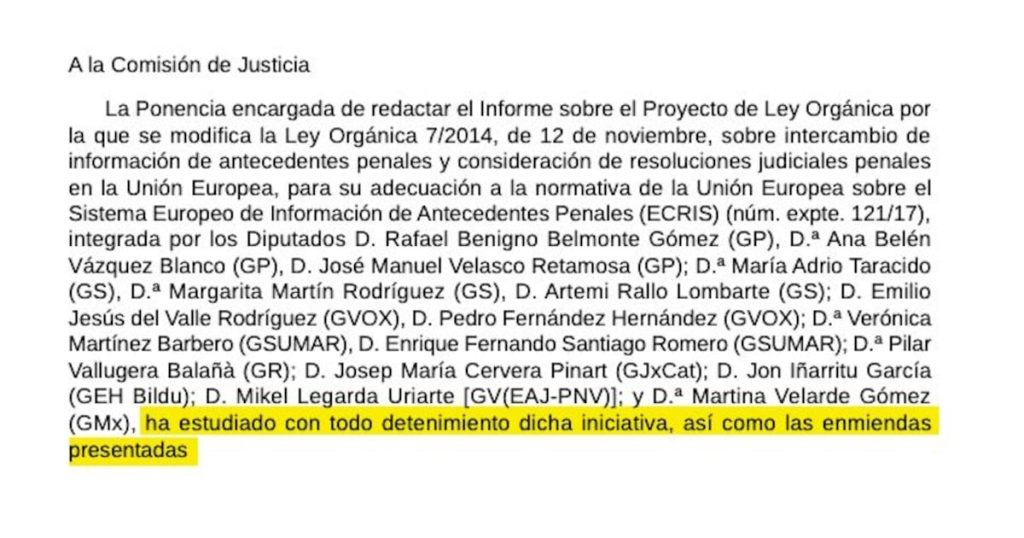The recent approval of a law reform in Spain that allows prisoners who fulfilled their sentences abroad to have those years counted towards their total jail time has caused controversy among political parties. The PP deputies who were part of the Justice Committee where the reform was approved left a written record of studying the initiative and amendments presented. This change will benefit ETA prisoners who served time in France, potentially expediting their release from prison. The PP has faced internal criticism for allowing the initiative to be passed in Congress, despite having asked for apologies and successfully postponing the Senate vote. They are now urging the PSOE to withdraw the initiative and have heavily criticized the Government for it.
In response to the backlash from the PP, the Government’s spokeswoman, Pilar Alegría, accused the PP of making a partisan and obscene use of ETA terrorism, emphasizing that the terrorist group disappeared 13 years ago. She expressed disappointment that the PP is using the debate over the group to divert attention from their lack of leadership and projects. Alegría denied that the PP made a mistake in supporting the legal reform in Congress, emphasizing that they were aware of what they were voting for. Despite the backlash, the Government has no intention of withdrawing the law and remains committed to its approval, refraining from discussing its potential benefits for ETA prisoners who have completed sentences in France.
The PP had previously pointed out that a similar reform was approved in 2014 under the Rajoy government and was not contested by the Council of State when proposed by the current government. However, this claim was inaccurate as the Rajoy government later corrected the reform in the Senate to exclude ETA crimes committed before 2010. The Council of State did not analyze this new change as it was introduced as a Sumar amendment not previously reviewed by the Council. The PP and Vox have shown support for the reform through this amendment, although they claim now to have been unaware of its implications.
The Socialist parliamentary spokesman, Patxi López, criticized the PP’s behavior, urging them to stop playing with emotions and focus on the transposition of the European directive to address a deficit in the country. Sumar, the government’s minority partner, expressed doubt about the PP’s claim of making an error and questioned their understanding of the law they supported. Members of the coalition, such as Gerardo Pisarello, mentioned the presence of legal experts within the PP and their supposed awareness of the vote on the law. Yolanda Díaz and her group’s representatives justified their support for the amendment, emphasizing the necessity of harmonizing prison sentences across EU countries.
Podemos spokesperson Javier Sánchez Serna expressed confusion over the controversy, highlighting that the law was a European directive transposition intended to standardize jail sentences across the EU. He criticized the PP for not raising concerns during the voting process and suggested that they need to better fulfill their responsibilities. The ongoing debate and backlash illustrate the complexities surrounding legal reforms and political decision-making, raising questions about transparency, accountability, and awareness among political actors. The outcome of this controversy remains uncertain as different parties continue to defend their positions while navigating the implications and consequences of the approved law reform.


